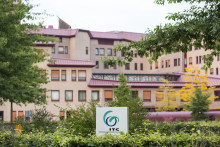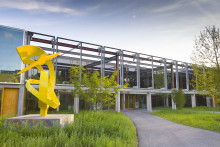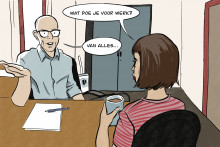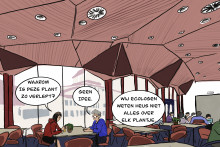The current master's programme at the ITC faculty, the geo-information science and earth observation programme, is made up of 118 EC that students are required to obtain within eighteen months. ITC students start the programme mid-September and finish in March. Students are currently continuing their work over the summer months in order to make it in time.
As of 2017, ITC wants to adhere to the UT's academic calendar. This means that students will take a two-year, 120 EC master's programme from September 2017 onwards: eight 15-EC quarters and a summer holiday between both years.
Calm reflection
ITC programme manager Emiel Dopheide feels that the new curriculum offers more room for calm reflection. 'The current programme is very demanding; I think there are four weeks in which there is no class activity. A two-year programme offers more flexibility and also allows for the opportunity of doing an internship or following courses elsewhere with an exchange programme.'
The ITC faculty asked its current master's students whether or not they were in favour of a two-year master's programme. According to Dopheide, the majority of the students approved of the plan. They also indicated that they would appreciate a bit more breathing space in the very demanding study programme. 'This allows them to participate in extracurricular activities more.'
Distance Learning
The new master's programme still needs to be accredited, but Dopheide does not foresee any problems. 'We don’t plan on many substantive changes. The biggest challenge we will face is to provide the students with added value in the additional months. After all, the students will have to pay more for the ITC master's programme. They will be away from home for longer and the tuition fees will be higher.'
With a view to ease some of the programme’s conditions, the faculty is investigating whether a part of the master's programme could be completed through distance learning – as most ITC students come from Africa, Asia and Latin America. Dopheide: 'We want to offer the first quarter as distance learning; this concerns the core module covering the basics of remote sensing and geo-information science. Anyone participating through distance learning can then join us in the second module.'
The ITC faculty is also investigating whether or not students should be allowed to complete their thesis project from a different location. Dopheide: ‘They could for instance write their thesis from home and we could arrange for remote examination. Or potentially at their local university, if our staff can combine it with a work visit. They may also have to return to Enschede for the defence.'









